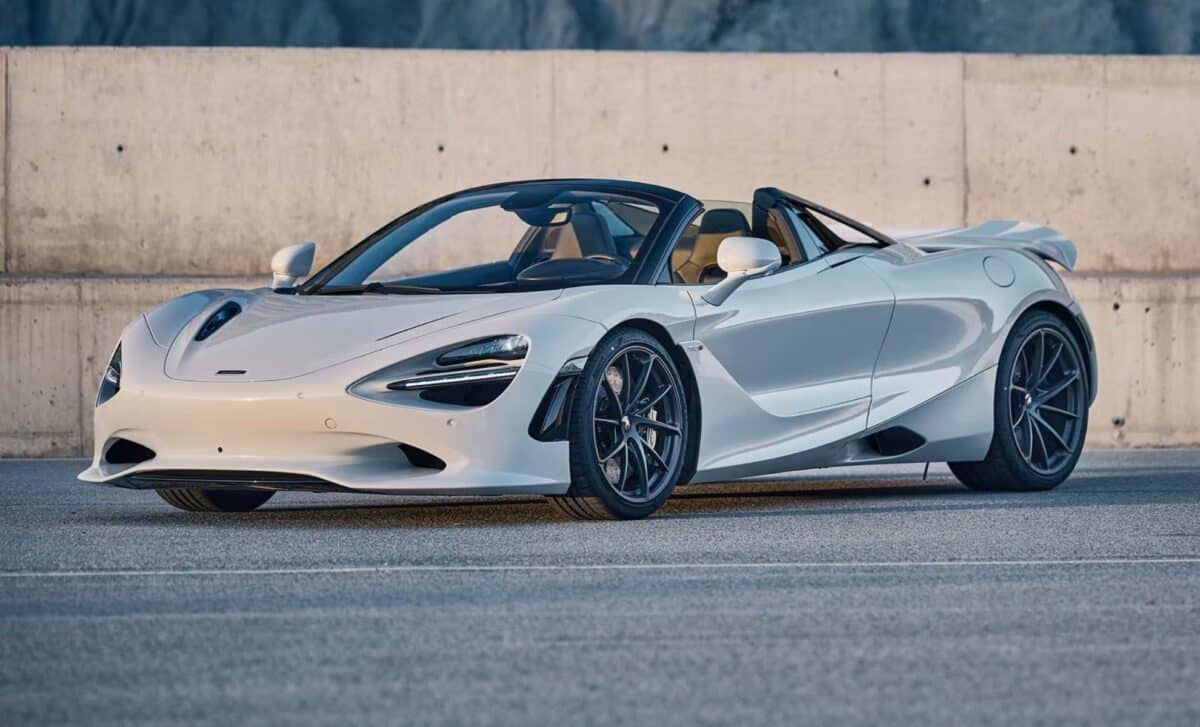New US tariffs on car imports are set to hit high-end British carmakers like Aston Martin, Bentley and McLaren. Mini and Rolls-Royce also face exposure, while mass-market producers are expected to be less affected.
The UK’s automotive export industry could face significant disruption from new US import tariffs, scheduled to take effect on 3 April.
British-made luxury vehicles, which dominate the country’s US-bound exports, are particularly exposed to the 25% levy introduced by Donald Trump’s administration.UK
According to the Society of Motor Manufacturers and Traders (SMMT), nearly 80% of cars made in the UK are exported, with the United States representing the second largest destination after the European Union.
Premium carmakers at the sharp end of US tariff exposure
Manufacturers of luxury and performance vehicles are among the most vulnerable to the incoming tariffs. According to SMMT figures, Jaguar Land Rover (JLR), Bentley, McLaren, Rolls-Royce and Aston Martin are all highly reliant on the US market, often exporting vehicles that carry price tags well above £100,000.
Bentley, owned by Volkswagen, exported 30% of its 10,600 deliveries to the United States in 2024. The company has confirmed the cost of the tariffs will be transferred to buyers. “We are assessing different scenarios on how to handle it, but it will be finally passed on to the consumer,” said Bentley’s CFO Jan-Henrik Lafrentz.
McLaren, whose models start at several hundred thousand pounds, exported 787 of its 2,137 units to North America in 2023. The US remains its most important overseas market, with demand increasing in early 2024, especially for the 750S Coupe and Spider.
Aston Martin, which generated around a third of its £1.6 billion revenue in the US last year, will likely be significantly impacted. The manufacturer sold 6,030 cars in 2024, with the US accounting for more sales than the UK and Asia-Pacific combined.
Mass-market brands largely shielded due to EU market focus
In contrast, UK-based manufacturing arms of mass-market players such as Nissan and Toyota are expected to be minimally affected. Their operations in Sunderland and Burnaston primarily serve the European market, with no significant exports to the US from these sites.
Nissan’s Sunderland plant produced over 284,000 vehicles in 2024, mainly Qashqai, Juke, and Leaf models for Europe. Toyota’s Burnaston site built 133,000 hybrid Corollas over the same period, also targeted at EU customers.
BMW-owned Mini presents a more nuanced case. While its Oxford plant serves both UK and international markets, the US accounted for just over 26,000 sales in 2024—a 21% drop compared to the previous year. BMW has stated its preference for “reducing tariffs and trade barriers” between the EU and the US, underlining the strategic challenge these levies pose.
Global Disruption Highlights Asymmetry in Tariff Impact
The introduction of the 25% US import tax has triggered significant turbulence across the global automotive sector. According to the BBC, stock markets responded immediately, with investors selling off shares in major carmakers. Companies like Toyota, BMW, and Jaguar Land Rover saw billions wiped off their valuations, reflecting market concern over the cost burden and trade uncertainty.
The measures are expected to affect between $300 billion and $400 billion in imports, depending on which components are ultimately included, according to Macquarie.
Price increases of between $4,000 and $12,000 per vehicle are anticipated, potentially reshaping consumer demand. Some manufacturers, such as Ferrari, have already announced a 10% price increase on US sales to offset the duty.
The BBC also cited Oxford Economics, warning that although firms might shift some production to US-based facilities, this would likely result in “significantly lower production” in key exporting countries like the UK and Germany.
The think tank also cautioned that while Mexico and Canada are temporarily exempt under existing free trade arrangements, the long-term scope of the tariffs remains unclear. Industry leaders have warned of reduced vehicle choice for American consumers and the risk of scaled-back production in home markets.
According to Patrick Anderson, CEO of the Anderson Economic Group, the compounded effects of tariffs could push some carmakers to withdraw models from the US market entirely, especially if they lack a strong American manufacturing base.









